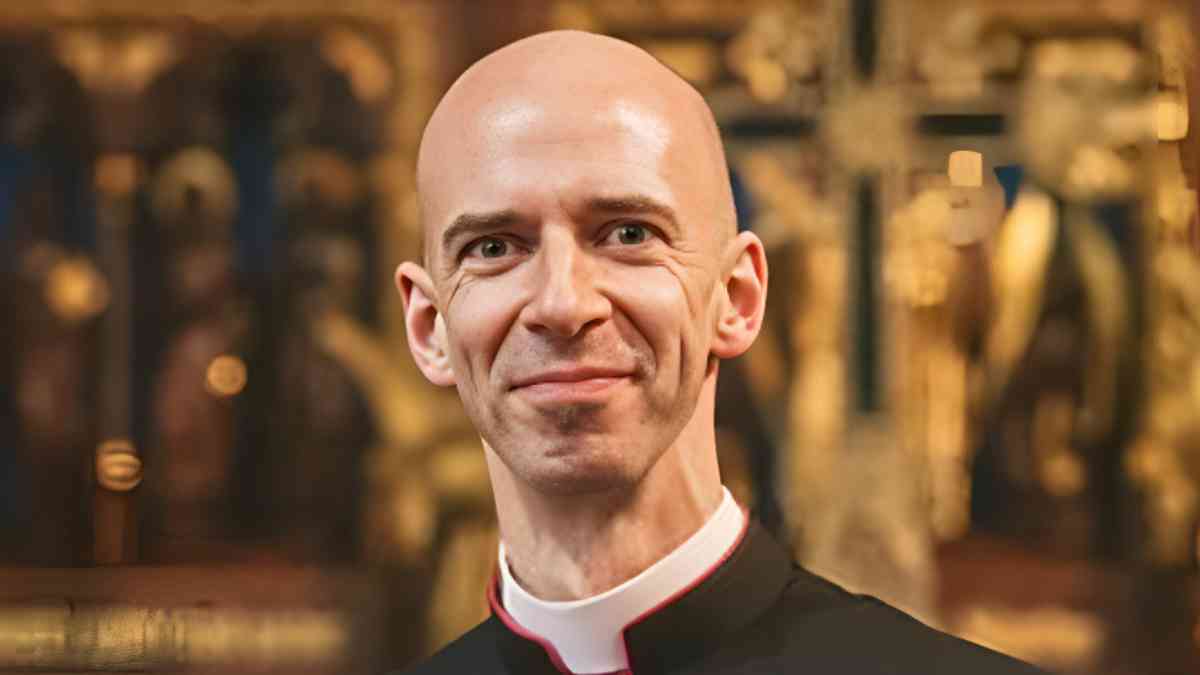Sion Rhys Evans: A Controversial Rise and Quiet Exit from the Church in Wales

Sion Rhys Evans is a name that has recently captured significant attention within religious and ecclesiastical circles in the United Kingdom. Known for his rapid ascent within the Church in Wales, Evans transitioned from diocesan administrator to Sub-Dean of Bangor Cathedral in a remarkably short span. However, his journey has not been without controversy. The dramatic series of events surrounding his governance, spending, and eventual departure from the Church has sparked conversations on leadership, accountability, and transparency within religious institutions.
Early Career and Rise Through the Church
Sion Rhys Evans began his career with the Diocese of Bangor in 2013, initially serving in administrative roles. He quickly gained a reputation as an efficient and loyal church functionary. By 2020, he had been ordained, and just a year later, he was appointed as Sub-Dean of St Deiniol’s Cathedral in Bangor. At the same time, he retained his role as Diocesan Secretary, essentially overseeing both administrative and spiritual arms of the diocese.
This dual role was highly unusual and raised eyebrows within ecclesiastical circles. It meant Evans held significant authority over both the cathedral’s day-to-day operations and its financial governance. In many traditional church structures, such powers are deliberately split between different roles to maintain checks and balances. However, in Evans’ case, this consolidation was justified as a matter of practicality and trust, particularly by his mentor and senior church figure, Archbishop Andy John.
The Protégé of Archbishop Andy John
A major factor in Evans’ rapid ascent was his close association with Archbishop Andy John, the Archbishop of Wales. Seen by many as the Archbishop’s protégé, Evans was frequently described as the right-hand man within diocesan matters. Their working relationship was considered central to the strategic development of the Diocese of Bangor.
However, such closeness between a senior cleric and a diocesan officer is often a double-edged sword. While it can lead to swift decision-making and organisational efficiency, it also risks creating echo chambers where dissenting voices are silenced or marginalised.
As Evans’ responsibilities grew, concerns started to emerge about the absence of proper oversight and the potential conflicts of interest arising from his dual appointments.
Financial Irregularities and Mismanagement Claims
In early 2024, serious concerns began to surface about the financial management of the Diocese under Evans’ stewardship. Reports indicated that over £418,000 had been spent on cathedral renovations, including pews, altars, and choir stalls, without undergoing the proper channels of diocesan approval.
Moreover, it was revealed that Evans had made trips to Dublin and Rome, reportedly costing around £20,000, funded using diocesan credit cards. While these trips were initially described as clerical or cultural engagements, internal audits later questioned their necessity and the appropriateness of using church funds.
The issue escalated to the point where Archbishop Andy John submitted a Serious Incident Report to the Charity Commission in July 2024. The Diocese later confirmed that financial irregularities had occurred and began taking steps to reimburse some of the misallocated funds.
The Quiet Departure
In February 2024, Evans was placed on a period of gardening leave following an undisclosed complaint. Although he remained officially employed for several months, no further public duties were undertaken by him. By late 2024, it was quietly announced that Sion Rhys Evans had stepped down from his roles within the Church in Wales.
Notably, there was no public explanation from either Evans or the Diocese of Bangor. The departure was downplayed, with no official press statement or ecclesiastical commentary. This silence led to speculation and criticism about the Church’s handling of the situation and the lack of transparency shown to the public and parishioners.
A New Chapter in Cambridge
Despite the controversy surrounding his departure, Evans did not remain out of the public eye for long. In April 2025, he was appointed as Bursar and General Manager at Westminster College in Cambridge, a training institution for United Reformed Church ministers.
The appointment raised fresh questions. Was the College fully aware of the circumstances surrounding his departure from Bangor? Did Archbishop Andy John provide a reference? Was due diligence carried out? These questions remain unanswered, but the public discourse around his new role is a testament to the lingering impact of his earlier controversy.
The reported salary range for the new position is between £65,000 and £70,000, putting Evans back into a senior administrative role with considerable financial oversight.
Reflections on Church Governance
The case of Sion Rhys Evans has brought wider issues within church governance into the spotlight. His dual role in both the cathedral and the diocese posed an inherent conflict of interest that, in hindsight, should have been addressed far earlier.
Checks and balances are foundational principles in any organisation, especially within religious bodies that rely on public trust and charitable donations. The consolidation of roles, lack of financial oversight, and failure to act on early concerns point to structural vulnerabilities that may exist in similar institutions across the UK.
Moreover, the quiet nature of Evans’ exit and the opaque hiring practices that followed have left many clergy and laypeople calling for stronger governance protocols, more robust auditing procedures, and a renewed commitment to transparency.
Public Trust and the Role of the Charity Commission
The Charity Commission’s involvement underscored the gravity of the situation. While the Commission eventually closed its inquiry after the diocese reimbursed the misallocated funds, it served as a wake-up call to many that even religious institutions must adhere to strict financial and ethical standards.
The public’s trust in religious institutions can be fragile. When incidents like this occur, they often reverberate far beyond the local diocese, affecting the national perception of church integrity. The onus lies with church leaders to ensure that governance frameworks are not only in place but actively upheld.
The Human Side of the Story
While the structural and financial issues are paramount, it’s important not to lose sight of the human story behind this saga. Sion Rhys Evans, like many church leaders, likely entered his vocation with a genuine sense of service and faith. Ambition, trust from senior figures, and rapid promotion created a trajectory that ultimately may have overwhelmed the checks and balances meant to guide it.
His story is a reminder that no individual, regardless of role or rank, is above accountability. It also highlights the importance of mentorship that prioritises development with responsibility over mere promotion.
Conclusion
Sion Rhys Evans‘ rise and fall within the Church in Wales is a compelling case study of ambition, oversight failure, and the consequences of insufficient governance in religious institutions. From his beginnings in Bangor to his sudden departure and re-emergence in Cambridge, his journey offers important lessons for church leaders and laypeople alike.
The Church must now take those lessons seriously. Ensuring transparency, maintaining public trust, and fostering a culture of accountability must become non-negotiable aspects of ecclesiastical leadership in modern Britain. Only then can stories like that of Sion Rhys Evans serve as catalysts for meaningful reform rather than repeat cautionary tales.



